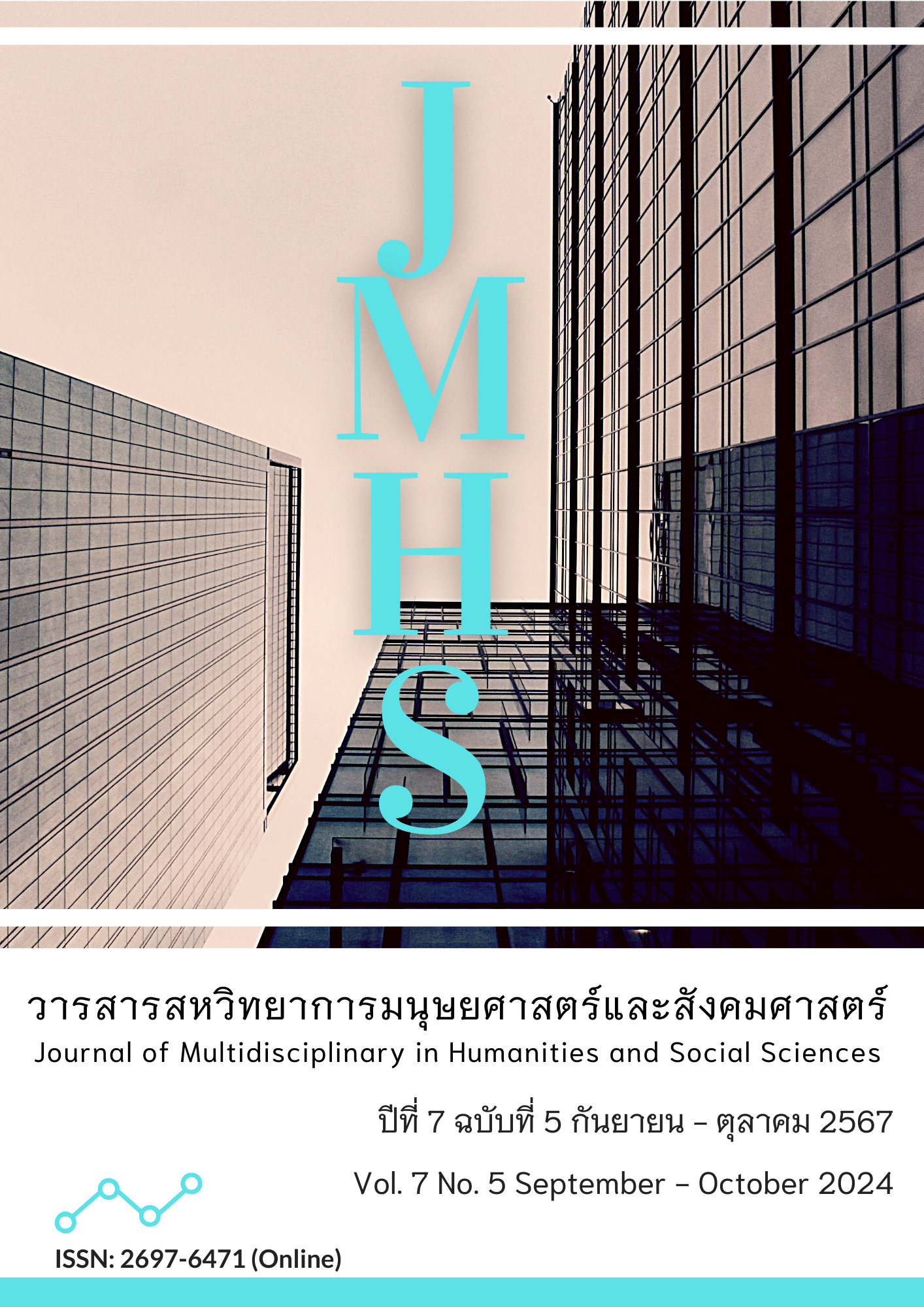การบูรณาการหลักจักกวัตติสูตรเพื่อการพัฒนาพรรคการเมืองไทยในศตวรรษที่ 21
Main Article Content
บทคัดย่อ
บทความนี้มีวัตถุประสงค์เพื่อวิเคราะห์แนวทางการบูรณาการหลักจักกวัตติสูตรเพื่อการพัฒนาพรรคการเมืองไทยในศตวรรษที่ 21 รูปแบบการวิจัยเป็นการวิจัยเชิงคุณภาพ ใช้แนวคิดหรือทฤษฎีกระบวนการเป็นกรอบการวิจัย ผู้ให้ข้อมูลสำคัญ คือ ผู้ทรงคุณวุฒิและเชี่ยวชาญ จำนวน 42 รูป/คน ใช้วิธีคัดเลือกแบบเจาะจง เครื่องมือที่ใช้ในการวิจัยมี 2 ชนิด คือ 1) แบบสัมภาษณ์ 2) แบบการสนทนากลุ่มเฉพาะ วิเคราะห์ข้อมูลโดยใช้วิเคราะห์เนื้อหาแล้วเขียนบรรยายเชิงพรรณนา
ผลการวิจัย พบว่า 1. สภาพทั่วไปของพรรคการเมืองไทย พรรคการเมืองเปรียบเสมือนเสาหลักของระบอบการปกครองแบบประชาธิปไตย บทบาทของพรรคการเมืองจึงมีความสำคัญต่อการทำหน้าที่เป็นตัวแทนของประชาชนในการขับเคลื่อนประเทศชาติ แต่พรรคการเมืองยังคงเผชิญกับปัญหาต่างๆ อยู่หลายประการ เช่น ปัญหาความแตกแยกภายในพรรคการเมือง ปัญหาการขาดแคลนนักการเมืองคุณภาพ และปัญหาการทุจริตคอร์รัปชัน 2. หลักการบูรณาการหลักจักกวัตติสูตรเพื่อการพัฒนาพรรคการเมืองไทย หลักจักกวัตติสูตรเป็นหลักการปกครองที่ดีในพระพุทธศาสนา ซึ่งสรุปได้ 5 ประการ คือ 1) ธรรมาธิปไตย 2) ธรรมิการักขา 3) อธรรมการนิเสธนา 4) ธนานุปธาน และ 5) ปริปุจฉา นำมาบูรณาการเข้ากับการพัฒนาพรรคการเมืองไทย 4 ด้าน และ 3. แนวทางการบูรณาการหลักจักกวัตติสูตรเพื่อการพัฒนาพรรคการเมืองไทยในศตวรรษที่ 21 โดยมีแนวทาง ดังนี้ 1) การยึดหลักธรรมาธิปไตย การยึดหลักธรรมะเป็นแนวทางในการดำเนินงาน 2) การส่งเสริมธรรมิการักขา การมีกลไกการตรวจสอบภายในที่เข้มแข็ง 3) การยึดมั่นในอธรรมการนิเสธนา การต่อต้านการคอร์รัปชัน 4) การส่งเสริมธนานุปธาน การมีระบบที่โปร่งใส ตรวจสอบได้ 5) การยึดหลักปริปุจฉา การมีช่องทางการสื่อสารที่เปิดกว้าง องค์ความรู้จากการบูรณาการหลักจักกวัตติสูตร ซึ่งเป็นหลักการปกครองที่ดีในพุทธศาสนาและจะเป็นประโยชน์หรือนำไปใช้ในการพัฒนาพรรคการเมืองไทยในศตวรรษที่ 21 ให้เป็นสถาบันทางการเมืองที่เข้มแข็ง คือมีนักการเมืองคุณภาพ ระบบการเมืองดี ประชาชนเชื่อมั่น และประเทศชาติเจริญ
Article Details

อนุญาตภายใต้เงื่อนไข Creative Commons Attribution-NonCommercial-NoDerivatives 4.0 International License.
ทัศนะและความคิดเห็นที่ปรากฏในวารสาร ถือเป็นความรับผิดชอบของผู้เขียนบทความนั้น และไม่ถือเป็นทัศนะและความรับผิดชอบของกองบรรณาธิการ
เอกสารอ้างอิง
จักษ์ พันธ์ชูเพชร. (2549). การเมืองการปกครองไทย : จากยุคสุโขทัยสู่สมัยทักษิณ. กรุงเทพฯ: มายด์ พับลิชชิ่ง.
ณรงค์วรรษ บุญมา และ กรรณิกา คำดี. (2563). ศึกษาวิเคราะห์สภาพสังคมที่ปรากฏในจักกวัตติสูตร. วารสารสังคมศาสตร์และมานุษยวิทยาเชิงพุทธ, 5(7), 183-196. สืบค้นจาก https://so04.tci-thaijo.org/index.php/JSBA/article/view/241643
ธนพันธ์ ไล่ประกอบทรัพย์. (2564). การพัฒนากระบวนการและเครื่องมือการกำหนดนโยบายสาธารณะของพรรคการเมืองไทย. กรุงเทพฯ: สถาบันพระปกเกล้า.
พระมหาชัยพร ฤทธิ์กระจ่าง. (2561). การศึกษาวิเคราะห์ความสำคัญของจักกวัตติสูตร. วารสาร มจรสังคมศาสตร์ปริทรรศน์, 7(4), 95-108 สืบค้นจาก https://so03.tci-thaijo.org/index.php/jssr/article/view/161904
พระยุธาน นาคขำ. (2567). การประยุกต์ใช้ขันติธรรมในการดำเนินชีวิตของประชาชนวัดค้างคาว จังหวัดนนทบุรี. วารสารนวัตกรรมการจัดการศึกษาและการวิจัย, 6(1), 247-256. สืบค้นจากhttps://so02.tci-thaijo.org/index.php/jemri/article/view/262817
มหาจุฬาลงกรณราชวิทยาลัย. (2539). พระไตรปิฎกภาษาไทยฉบับมหาจุฬาลงกรณราชวิทยาลัย. กรุงเทพฯ: โรงพิมพ์มหาจุฬาลงกรณราชวิทยาลัย.
วรเจตน์ ภาคีรัตน์. (2554). บทบาทและอำนาจหน้าที่ของสมาชิกรัฐสภาในการรักษาวินัยพรรคการเมืองและการปฏิบัติหน้าที่ในฐานะผู้แทนปวงชน. กรุงเทพฯ: สำนักงานศาลรัฐธรรมนูญ.
สติธร ธนานิธิโชติ, ณัชชาภัทร อมรกุล, ปุรวิชญ์ วัฒนสุข. (2564). การศึกษาอนาคตและฉากทัศน์การเมืองไทยเพื่อสร้างประชาธิปไตยที่ยั่งยืน : พรรคการเมือง. กรุงเทพฯ: สถาบันพระปกเกล้า.
สถาบันพระปกเกล้า. (2565) การปรับปรุงกฎหมายเกี่ยวกับพรรคการเมือง. กรุงเทพฯ: สถาบันพระปกเกล้า.
อรทัย มีแสง. (2556). ทฤษฎีบูรณาการเชิงพุทธ. วารสารพุทธศาสน์ศึกษา จุฬาลงกรณ์มหาวิทยาลัย, 20(2), 43–58. สืบค้นจาก https://so02.tci-thaijo.org/index.php/jbscu/article/view/163026
Damnoen, P. S., Siri, P., Supattho, P. S., & Kaewwilai, K. (2021). The Development of Student Characteristics in According to the Nawaluk Framework of the Buddhist integration of Buddhapanya Sri Thawarawadee Buddhist College. Asia Pacific Journal of Religions and Cultures, 5(2), 126–135. Retrieved from https://so06.tci-thaijo.org/index.php/ajrc/article/view/249662
Li, X. (2023). Thailand’s Domestic Political Turmoil in 1992 and Its Impact on ASEAN Integration: An Analysis of Key Events and Decisions. International Journal of Multidisciplinary in Management and Tourism, 7(2), 269–282. https://doi.org/10.14456/ijmmt.2023.18
Lowell, A. L. (1923). Public Opinion in War and Peace. American Journal of International Law, 18(1), 207-209. https://doi.org/10.2307/2189243


